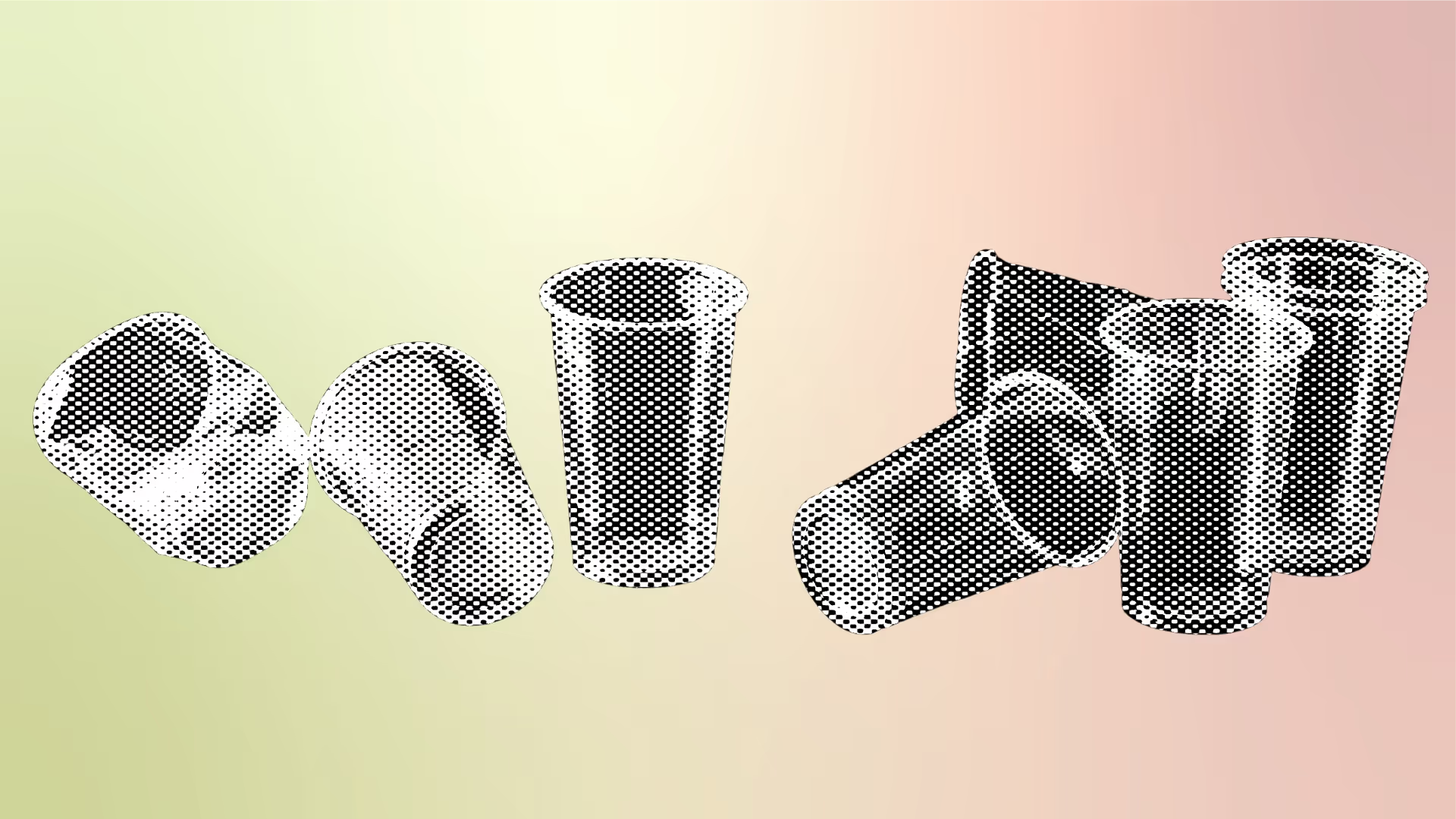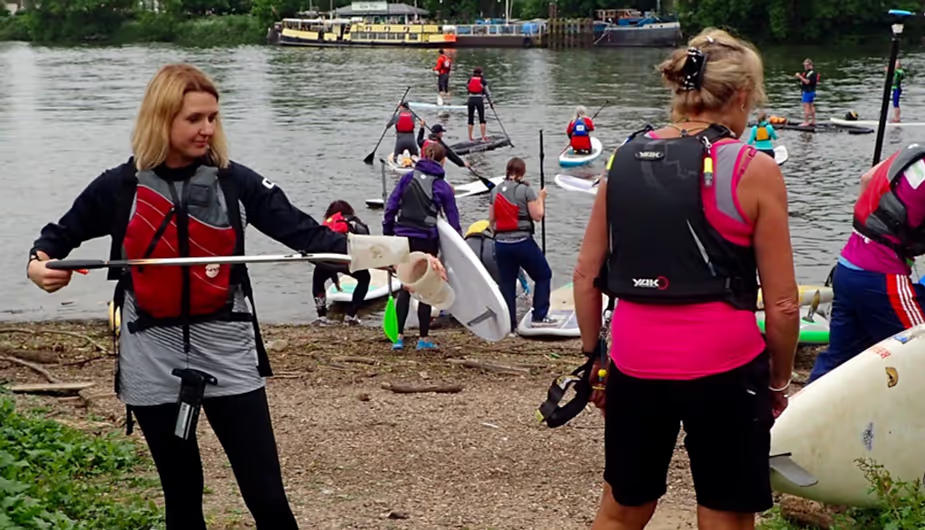
Ban on Single-Use Cups in Riverside Bars: Legislative Proposal Launch

From the fields of Glastonbury to the House of Commons, we attended the breakfast launch of a legislative proposal aiming to ban single-use plastic cups from riverside pubs and bars - part of a broader effort to tackle plastic pollution in the Thames and other UK waterways.
In this article, we detail:
- Why single-use cups are being targeted by new UK legislation
- How the In The Drink team built the case for policy change
- The promise of RFID and return systems for reuse schemes
- What this means for future UK event and bar operations
Let’s get started.
💡 Did you know? Each year, for every 1 million reusable event cups in regular use, 1,000 tonnes of carbon emissions could be avoided. Our Disposable vs Reusable Cups Report breaks down the environmental impact and return thresholds of different cup types. A must-read for venues, suppliers, and policymakers.
Why single-use cups are being targeted by the proposed legislation
Single-use cups are being targeted by the proposed legislation due to their significant contribution to plastic pollution in rivers and waterways. Lightweight and often improperly disposed of, these cups frequently end up in the environment, harming wildlife and placing a long-term burden on our ecosystems.
The legislation aims to reduce this waste at the source by encouraging reusable alternatives in high-impact areas like riverside bars and venues, inspired by the direct experience of the In the Drink team and partner organisations who have close ties to the Thames River and have experienced the effects of single use cup pollution first hand. Each year, the Port of London Authority removes hundreds of tonnes of litter from the River Thames, much of which is plastic.
Who are “In The Drink”?
In The Drink is a not-for-profit dedicated to reducing plastic pollution in UK waterways, particularly from single-use plastic cups used by riverside bars, events, and boat operators.
Founded in 2019 by a coalition of environmental advocates, the initiative emerged from firsthand observations of escalating plastic waste along the River Thames.
Through research, consultancy, and advocacy, In The Drink collaborates with hospitality businesses to transition to cost-effective, reusable alternatives, aiming to protect marine environments and promote sustainable practices.

Credit: https://inthedrink.org.uk/about-us/
How the In The Drink team built the case for policy change
The team at In The Drink has been working on this report for some time now, collating primary and secondary data to inform their case. The team themselves have collected over 100,000 single-use plastic cups from the Thames waterway, and conducted 250 in-person surveys at riverside pubs and bars to understand current practices and challenges. Their research revealed that 69% of venues are still using single use plastic cups.
The report also found that of SMEs already taking action to remove single use plastic cups from their operations, 67% have reported reduced operational costs and 52% say they have attracted new customers due to their environmental efforts.
Hope Solutions’ role in environmental impact modelling
Evidence for the In The Drink Report was taken from Hope Solutions’ previous research studies and publicly available papers, which evaluate the environmental impact of different cup types and the systems they can operate in.
The figures Hope Solutions calculated for the Raising the Bar venue report (produced, alongside Julie's Bicycle and Live Green) were used in the Legislative Proposal to present the pros and cons of different material types and the number of returns required for each cup type to be more environmentally beneficial than single-use alternatives.
The proposal suggests four mechanisms for the UK Government to use legislation to help curb plastic pollution caused by these riverside bars and draws upon case studies of specific UK venues and legislation in other countries.
The four proposed mechanisms are:
- Phased Ban on Single-Use Plastic Cups: Introduce a UK-wide ban on single-use plastic cups, following Belgium’s model, to be phased out over two years. This allows businesses time to switch to sustainable alternatives while reducing plastic waste.
- Immediate Ban on Free Branded Single-Use Cups: Prohibit drinks companies from distributing free branded plastic cups to pubs and bars, which contributes significantly to plastic pollution and encourages unnecessary single-use consumption.
- End of Relaxed Licensing Regulations: Allow the temporary Covid-era regulation (which enabled takeaway pints without extra licensing) to expire, effectively reducing the distribution of takeaway drinks in single-use cups.
- Mandatory Licensing Act Conditions (Dispersal Policy): Amend the Licensing Act 2003 to include a standard dispersal policy that prevents customers from leaving licensed premises with open drinks. This targets late-night littering and reduces demand for single-use cups used for takeaways or “stragglers”.
Sam Booth, Sustainability Director at AEG, spoke of their journey in eliminating single-use plastic from their venues, such as the O2 and The Eventim Apollo, where successes in stakeholder attitudes towards the reusable cups were evident. He also acknowledged challenges still exist in using reusables at all venues and event types.
The promise of RFID and return systems for reuse schemes
RFID (Radio Frequency Identification) was a recurring topic of conversation with many people discussing the clear benefits of the traceability and automatic deposit return opportunities this new technology presents.
Whilst already established in several permanent venues and stadiums, this technology is yet to be fully rolled out across the festival and live event industry.
However, several suppliers are hoping to be ready to enter the festival market for 2026, which will be a promising step forward for reusable systems, both in increasing return rates and the customer experience.
What this means for future UK event and bar operations
A massive congratulations to Paul Hyman and all of the In the Drink team for their perseverance on this important topic, dedicating their energy and available resources to protecting our precious and suffering waterways.
In a world that can feel heavy at times, it’s inspiring to see courageous people putting the hours in to improve the well-being of the communities and environment that surrounds them, and in turn everyone else's.
Cups are an ever-complicated topic that requires a lot of collaborative effort across all stakeholders for significant and meaningful change to be achieved. And, this is something In the Drink team is committing to. We know we’re not alone in our excitement to see the next stages of this work.
Ready to take action?
We’ve created practical guidance on sustainable approaches to cups, from material comparisons to the potential returns of a more sustainable model. Whether you're looking to explore cup hire, integrate RFID, or roll out a full deposit-return model, our resources are here to help.
Need hands-on support? Get in touch with us for bespoke advice, tailored implementation strategies, and supply chain introductions that suit your venue or event.


.png)
.png)
%20(18).png)